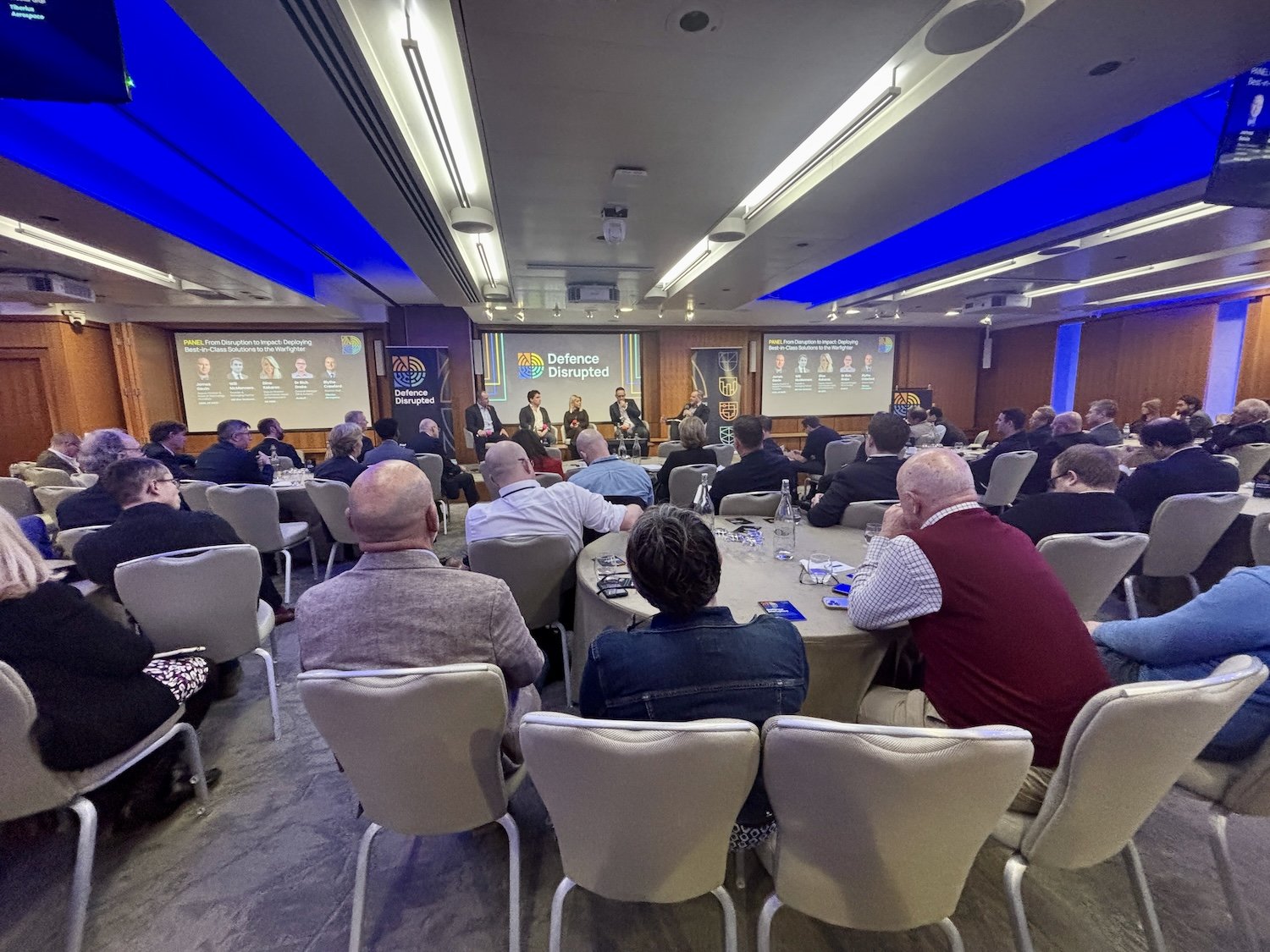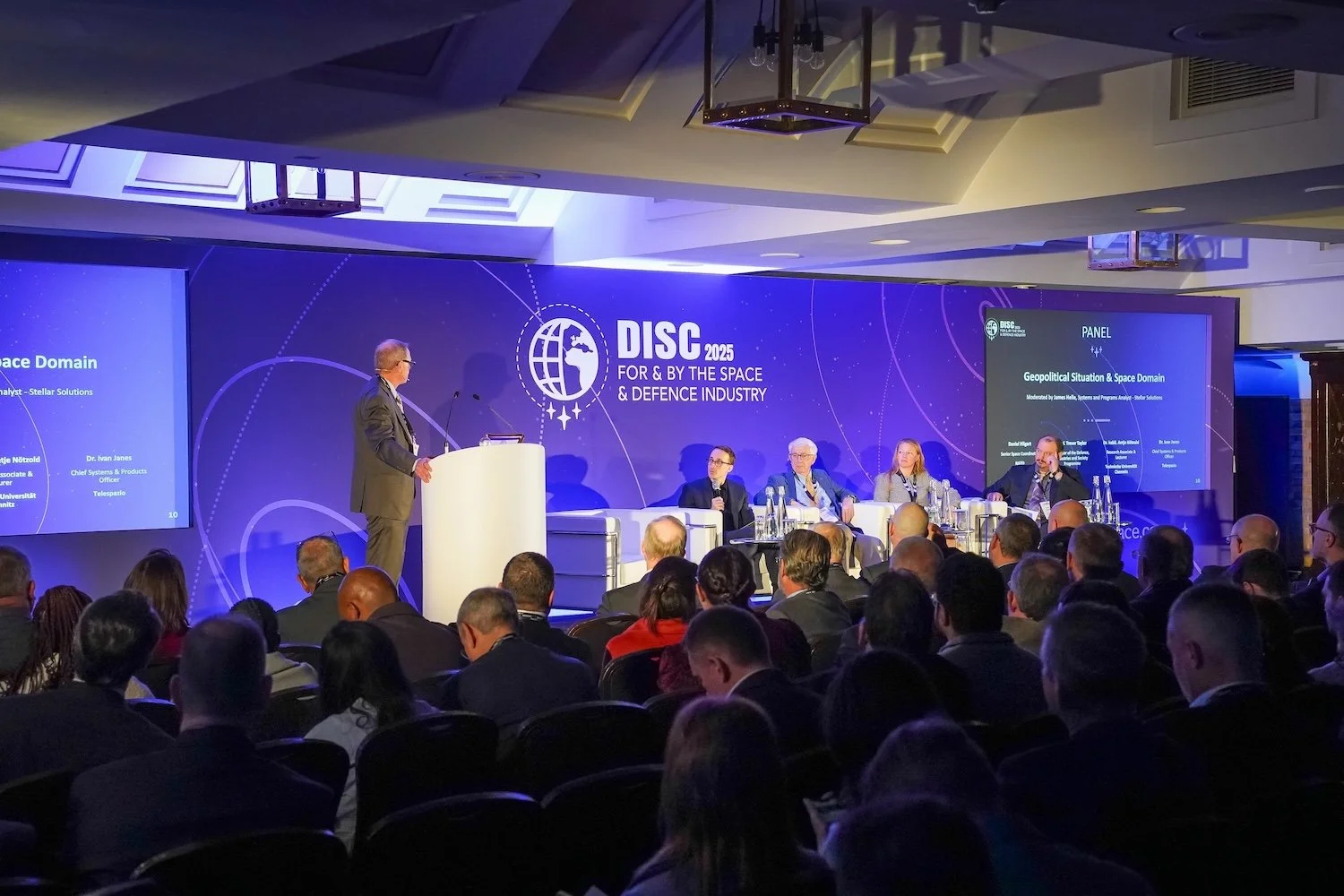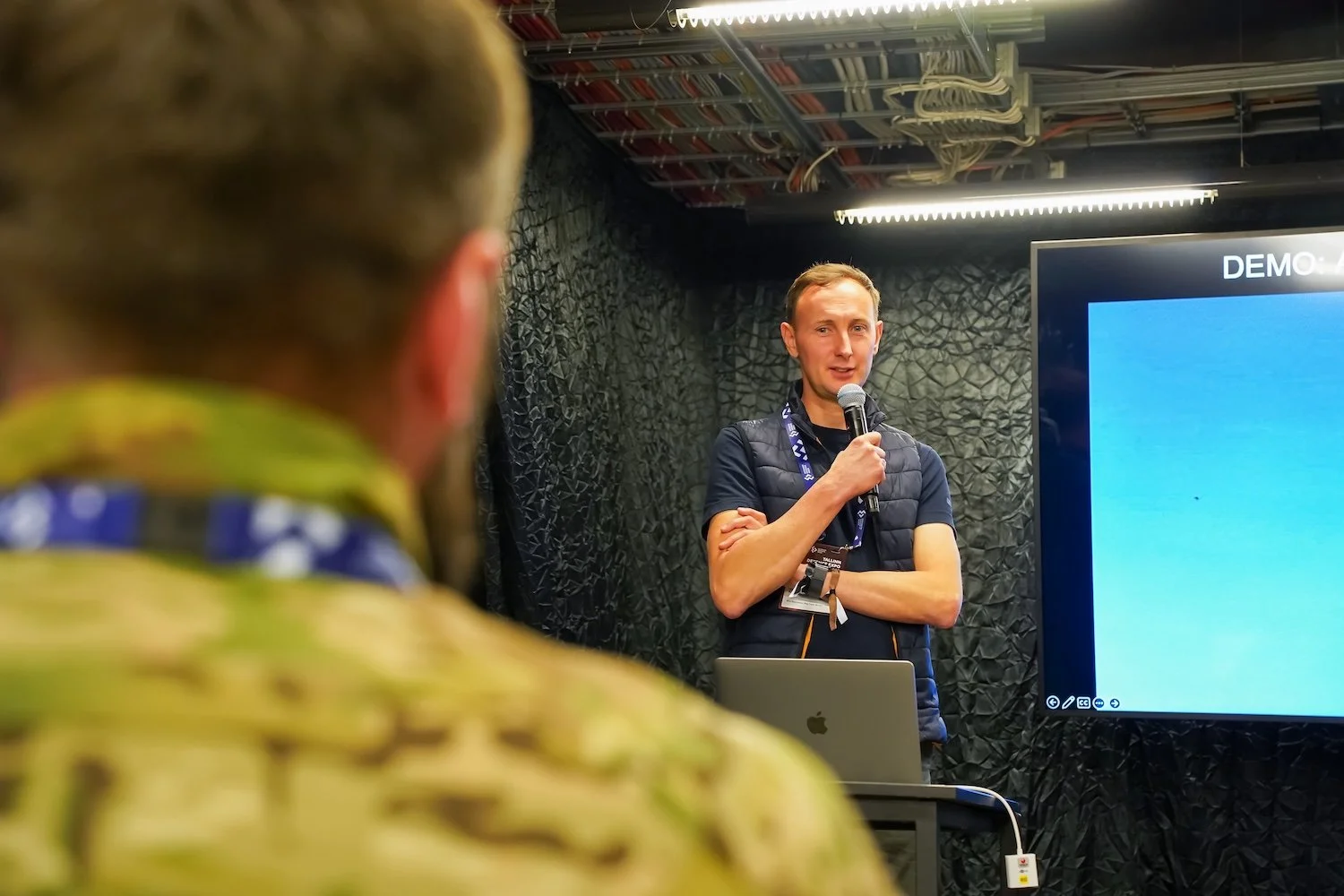Business of Defence conference, London, Nov 2025
On 17th November 2025, London Business School hosted the inaugural Business of Defence conference, drawing over 300 participants into Nuffield Hall to explore how technology, capital and strategy are reshaping the defence landscape. Students, academics, serving and former military personnel, journalists, founders and investors gathered around a central question: is the West genuinely ready for war in an age of drones, AI and contested infrastructure?
© Images by Hiatus.Digital
The day opened with a keynote fireside conversation between General Sir Richard Barrons (Co-Chairman, Universal Defence & Security Solutions) and Major Laurence Thomson (Chief of the General Staff’s Visiting Fellow at RUSI). Framing the last three decades as a “holiday from history”, General Barrons argued that Western governments internalised the wrong lessons from Iraq and Afghanistan, treating war as an “away match” and assuming state-on-state conflict had receded.
Drawing on Clausewitz, he reminded the room that while technology moves fast, the nature of war does not. Attack surfaces now stretch across cyber, maritime, subsea cables and information environments, which means resilience demands a whole-of-society effort, not just a better-equipped military. Nordic and Baltic models of civil preparedness were highlighted as examples the UK and its allies should take seriously.
The first panel brought together operators, industry and policy voices to look at capability and industrial base. Jamie Aplin (former Royal Marines officer and MBA student) outlined a notional 2040 force structure: 20% “exquisite systems” at the high end, 40% attributable systems and 40% expendable platforms such as one-way effectors and counter-drone systems. The point was clear, militaries and procurement cultures are still biased toward the exquisite end, even as the battlefield in Ukraine shows the decisive impact of cheap, rapidly iterated uncrewed systems. Speakers stressed that the UK is not yet on a wartime industrial footing, with defence manufacturing clustered in places like Belfast and Stevenage struggling to ramp output under supply-chain constraints that create a kind of regulatory Franken-build challenge.
Finance, governance and policy came into focus in the afternoon. Investors including Jack Wang (Project A ventures), Ryan Benitez (Chief Commercial Officer, NATO DIANA), Edmund Phillips (NSSIF), Lars Durschlag (DefenceTech Unicredit), Fred Thomas MP (former Royal Marines officer and Member of Parliament, UK), Lisa Quest (Oliver Wyman) and Charles Clover (Financial Times, journalist and author) tackled the question: is this just a defence bubble?
Their view, grounded in numbers, was that this looks more like a reset than froth. Private equity has raised roughly five times more capital for defence than has yet been deployed, citing a fragmented European regulatory environment, ITAR headwinds for UK-based companies, and a persistent “missing middle” where scale-up capital is hard to access. ESG screens, once an outright blocker, are being reconsidered as defence is reframed as a basic enabler of human security rather than an industry in opposition to sustainability principles.
Later on, the conversation turned practical. Gus Lersten (former Royal Marines officer and founder of Labrys, backed by Plural and Archangel) spoke candidly about building moats in a sector where sales cycles are counted in years, not quarters. His mantra, “if it works in practice, it probably works in theory,” landed well with founders in the room, along with his observation that there is a “laughability and sceptical phase” every dual-use company has to survive before adoption. Nicholas Nelson (General Partner, Archangel) highlighted the “defence syndicate” model and the reality of reviewing over a thousand pitches per year from defence-curious founders across Europe. What he looks for are teams who can survive long procurement timelines, translate real operator needs into product, and build an evidence base through pilots and adoption metrics rather than just slideware.
You Might Also Like:












